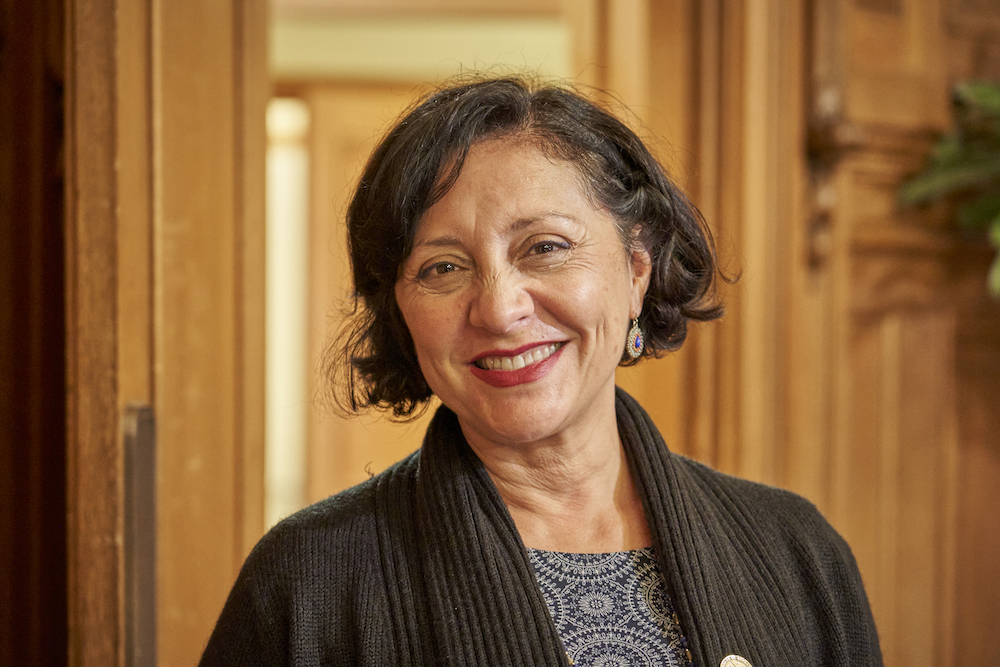More than 50 people showed up at the Board of Supes meeting today to urge the city to drop its lawsuit against the EPA—a case that could do terrible damage to the Clean Water Act and environmental law in the United States.
The speakers represented some 46 community and environmental organizations, but all had the same basic message:
By asking a Supreme Court dominated by right-wing judges to weigh in on the Clean Water Act, the city is asking for lasting trouble.

“This could be a very famous and much-cited case,” Peter Drekmeier, policy director of the Tuolumne River Trust, said. “The case that gutted the Clean Water Act.”
As another speaker put it, “San Francisco will win, and by winning will lose, the whole country will lose.”
Sup. Myrna Melgar, who is sponsoring a resolution calling on City Attorney David Chiu and Mayor London Breed to drop the appeal, sent a letter to board members noting that, for starters, the city is allowing some pretty nasty stuff to happen:
(1) between 2011 and 2014, 100 million gallons of combined sewage and storm water were discharged from the Oceanside sewage treatment system;
(2) between 2008 and 2014, surveys indicated 20% of recreational beach users were in contact with receiving water after CSOs;
(3) between July 2012 and June 2013, 56 of 468 samples collected at 10 shoreline monitoring locations exceeded water-quality criteria for at least one bacteria indicator, and 39 of those elevated samples (70%) were associated with a CSO event.
One of the speakers at the meeting today described surfing at Ocean Beach not knowing that a sewage overflow had just dropped hazardous material into the water. He came down with pneumonia and almost died.
From Melgar’s letter:
San Francisco’s case threatens to substantially damage the Clean Water Act. Significant portions of EPA’s Clean Water Act permitting regime depend upon its ability to rely on limits that vary based on the state of the water into which pollution is being discharged. EPA’s “general permitting” regime—by which EPA issues permits governing groups of similar sources nation-wide—necessarily depends upon the Agency’s ability to include such limits, given the variety of different water bodies affected by those permits. Recent efforts to enforce the Clean Water Act against mountaintop coal-mining operations and PFAS polluters have also relied on limits based on the quality of the receiving waters. The current supermajority conservative Supreme Court already severely weakened federal environmental law – in the last two years alone, by eliminating a vast share of all the wetlands in the United States from federal protection (Sackett – 2023) and overturning a key doctrine of deference to agency expertise (Loper Bright – 2024).
More:
San Francisco is assisting a sustained polluter-funded effort to undermine the nation’s bedrock environmental laws. It is championing the views and interests of the National Mining Association, American Gas Association, American Petroleum Institute, American Chemistry Council (all of whom have filed briefs supporting the City) and other representatives of the nation’s biggest polluters. It is especially irresponsible to join that effort given the current Supreme Court’s demonstrated inclination to adopt sweeping limitations on the scope of environmental laws.
San Francisco is attempting to evade water quality standards that protect its citizens from public health hazards resulting from, e.g., the discharge of sewage along its coastlines.
The supes met in closed session with City Attorney David Chiu and Dennis Herrera, head of the SF Public Utilities Commission. Because it was a closed session, I don’t know what they talked about—but I do know that the Melgar-Peskin resolution will go forward. Melgar told me she wants to send the measure to the Land Use and Transportation Committee “depending on the PUC’s willingness to do a mediation with a third party next week.”
The SFPUC is arguing that meeting the EPA standards would cause huge water and sewer rate hikes. But, Melgar said, “it is a contradiction because they argue that they cannot meet the EPA standard because it is unclear, but they are clear enough to quantify it and calculate that it will cost each ratepayer $400 a year.”
Here’s what’s fascinating: The supes fund the City Attorney’s Office, which has spent a lot of money on this case. Chiu never briefed the board on the filing, “and would not have had I not asked,” Melgar said.
In theory, the supes could vote to cut off funding for the appeal.
The Supreme Court will hear arguments early in October.



